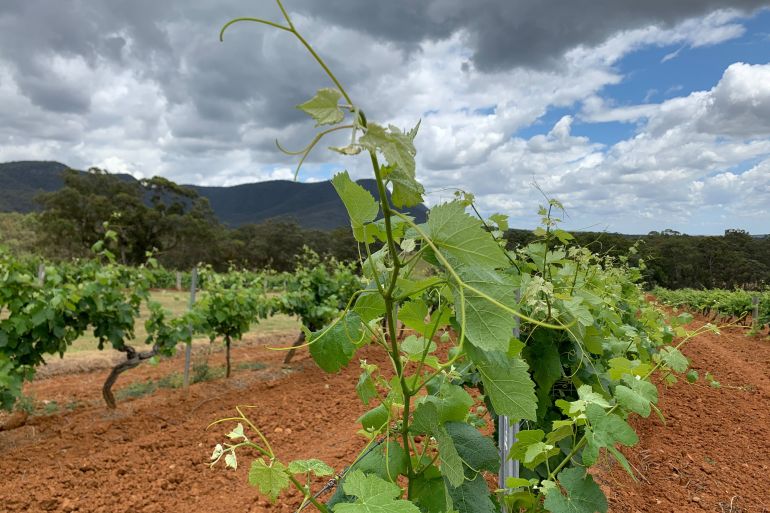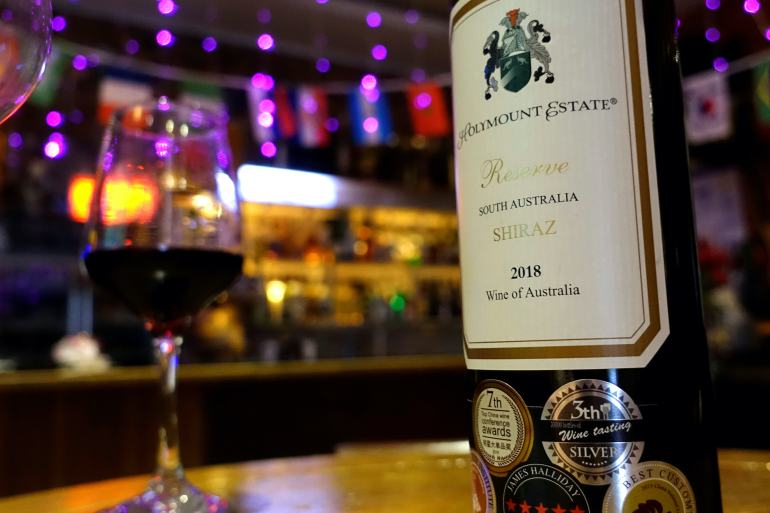Party over? China trade rift threatens Australian winemakers
A widening political rift between Canberra and Beijing is spilling over into trade ties between the two.

Adelaide, Australia – As a seasoned vintner from Australia’s famed southern wine-making region, David Harris is proud of one of his country’s best-known products.
“You don’t have to be a genius to know great quality wine. It’s got to jump out of the glass,” he said. “We get the fundamentals right and we do it at a good price.”
Keep reading
list of 4 itemsIndia, China close in on plan to end months of border standoff
For Biden, tough China trade and tech questions may have to wait
California wine country ablaze as new wildfires force evacuations
One of the countries that has been guzzling ever-larger quantities of Australian wines in recent years is China.
“They’ve drunk us out of house and home. We are getting the highest prices we’ve ever had thanks to China,” Harris, CEO of South Australia Wine Group, a wine trading and services company, told Al Jazeera.
But the party may be coming to an end.
A widening political rift between Canberra and Beijing is spilling over into trade ties between the two, threatening corporate profits and livelihoods in some of Australia’s most important export industries.
Analysts and Australian exporters suspected that China is retaliating following moves and statements by Canberra against Beijing, specifically concerning latest-generation 5G mobile phone networks and the coronavirus. China has not officially said it is doing so, but recent moves speak for themselves.
In May, China hit Australian barley with import duties, accusing it of selling its products below cost to gain market share, a process known as dumping, and halted beef imports from some of Australia’s largest meat processors.
Earlier this month, live Australian lobsters died waiting for customs clearance in Shanghai. China has halted some imports of Australian timber, reportedly due to concerns about pests.
Australia’s copper and sugar exports to China may also be targeted, according to state media.
And in August the China Alcoholic Drinks Association (CADA) called for retrospective tariffs on Australian wine imports, as part of an investigation into dumping, according to Australian winemaker Treasury Wine Estates.
China has become crucial to Australia’s wine industry. In the last financial year, China imported $850m (1.17 billion Australian dollars) of Australian wine — 39 percent of the total value of Australian wine exports.

Indeed, China is by far Australia’s largest and most important trading partner. About a third of Australia’s total exports are now destined for Chinese shores, a market valued at approximately $111bn (153 billion Australian dollars) in the 2018-2019 financial year. This success in China has been facilitated partly by a Free Trade Agreement (ChAFTA) signed in 2015, which deepened the trade reliance.
Souring ties
Beijing has denied imposing the speculated embargo, which would flout World Trade Organization rules and ChAFTA. However, on November 4, a state mouthpiece, the Global Times, referred to an “import suspension”, further complicating China’s messaging and creating uncertainty.
And on November 12, Wang Wenbin, a spokesman for China’s Ministry of Foreign Affairs told reporters, “The cause of the current difficulties in our bilateral relations is very clear … For some time, Australia has been violating basic norms governing international relations, and made erroneous words and deeds on issues concerning China’s core interests, including those related to Hong Kong, Xinjiang and Taiwan, and blatantly interfered in China’s internal affairs.”
We are getting the highest prices we’ve ever had thanks to China.
Beijing and Canberra’s relationship took a turn for the worse in 2018 when Australia became the first nation to ban Chinese telecommunications giant Huawei from the rollout of its 5G mobile phone network.
Relations frayed further after Australia led calls for an inquiry into the origins of the coronavirus pandemic, which began in the Chinese city of Wuhan. In another move likely to stoke tensions, for the first time since 2007, Australia joined the US, Japan and India for the Malabar naval exercises.
China’s growing economic and military power has led to questions about its commitment to the international rules-based order and prompted a more hawkish backlash from Australia and its allies.
Professor Steve Tsang, director of the SOAS China Institute at the University of London, said Australia’s ability to navigate its trading interests with China is being put to the ultimate test by its allegiance to longtime security ally Washington.
“Australia is certainly caught in between the pulling forces of a US-China decoupling,” says Professor Tsang, “Australia will judge what is in its best national interest and which international partner it can depend on, and between China and the USA, it is clear which one Australia feels more comfortable with.”
Blacklisted
Any embargo on Australian exports to China could be catastrophic. According to Jeffrey Wilson, research director of the Perth USAsia Centre at the University of Western Australia, the seven products that have been targeted employ hundreds of thousands and together represent about $15.9bn (21.9 billion Australian dollars) in exports to China.
That amounts to 14.3 percent of Australia’s total exports to China in the 2018-2019 financial year.
Wilson said China’s intention appears to be to spread disinformation in a bid to rattle the Australian export market and hit Australia where it hurts.

“It is psychological war more than trade war,” he said, “China has a long history of using this kind of trade sanction as a diplomatic weapon, and is doing so to ‘make an example’ of Australia for a range of foreign policy actions the Australian Government has taken in the last few years.”
He said Beijing targets industries that are highly dependent on China as a destination, or those products which Beijing can easily buy from somewhere else, which is why China has not placed any punitive measures on iron ore imports.
“Its steel industry is structurally dependent on Australian supply for normal operations, and the entire Chinese industrial ecosystem depends on its steel industry. Sanctioning iron ore would be ‘mutually assured destruction’,” Wilson said.
Greener pastures
The anti-dumping investigation by CADA, which is expected to take one year to complete, has homed in on three major Australian wine businesses: Treasury Wine Estates, owner of brands including Penfolds; Yellow Tail’s owner Casella Wines; and Australia Swan Vintage.
“Australian winemakers are cooperating fully. We don’t believe there is any evidence to support dumping,” said Tony Battaglene, chief executive of industry group Australian Grape and Wine.
Treasury Wine Estates stock slumped to a five-year low on November 5 due to fears that China would impose retrospective tariffs.
Battaglene said, “Duties, if assessed, will be applied to all Australian wine exporters”.
For winemaker David Harris, potential tariffs would hit hard, “It’s about 50 percent of what we do. It would be a massive, massive disaster but we wouldn’t go broke; there is huge market growth in India and Southeast Asia”.
Eric Yang, CEO of Adelaide-based Pacific Vintners, is also weighing up his options, “Of course, tariffs worry me, especially because we are Chinese market-oriented and focused. More or less this is a political issue, but it has shown that we can’t rely on one market. It is time to slow down, strategise and plan for alternatives.”
It is psychological war more than trade war.
Another issue that could be troubling for Australian winemakers is that consumers in China can now choose to quaff decent-quality wines from other countries.
In Beijing, longtime resident Claudia Masueger is the founder of Cheers, a retail wine chain with more than 100 outlets in major cities in China. About a quarter of the wine on offer is from down under.
The Swiss entrepreneur said that if tariffs are imposed on Australian brands, her customers might switch to Chilean or Argentinian wines as an alternative.
“It’s difficult to predict the outcome of tariffs but it would be sad to see the tax for Australian wine increase. Luckily, we represent all major wine growing regions, therefore, we will not face much trouble as a business,” Masueger told Al Jazeera.
But underneath the optimistic veneer, those with their livelihoods at stake fear Australia may be going down the same path as the United States, which is locked in a bitter trade war with China.
Trade expert Jeffrey Wilson said the situation for Australia may improve when US President-elect Joe Biden steps into his new role.
“Whereas Trump would be willing to let Australia suffer and ignore it, a Biden administration will see the sanctions as both a grave breach of international trade law, and also a direct economic assault on one of its most important regional allies,” Wilson said.
“By raising the political costs of these actions, the Biden administration will likely see China exercise some greater caution in sanctioning like this in future,” he added.